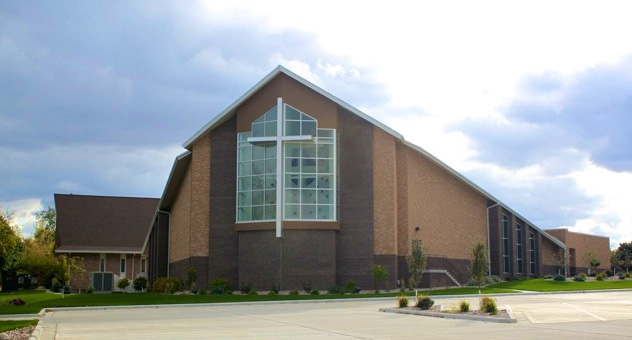In preparation for our Advent series of messages I took a little trip down memory lane to reminisce about some of the greatest surprises of my life. I’ve had some very exciting as well as very sobering surprises. Allow me to share a few of the surprises I have encountered over my life time as they were shared with me or as I experienced them.
My dad when I was 4 years old: “The grain elevator is on fire, I’m going to see if I can help.”
The school secretary after I had been hit in the mouth with a baseball bat in 3rd grade: “Oh my, that doesn’t look good!”
My mom when I was 13 years old: “The doctors confirmed I have breast cancer.”
My sister when I was 14 years old: “Mike! Brad! Help my bedroom is on fire!”
Vicki: “We’re going to have a baby!”
The doctor: “It’s a boy!”
My dad: “Mike, Grandma Altena was just killed today as she was crossing Highway 75.”
Me after I was overcome with methane gas: “Dang! I could’ve easily died!”
My mom: “The doctors have confirmed, I have stage four ovarian cancer.”
The Holy Spirit: “Leave your herds and go and prophecy.”
Vicki: “This just came in the mail; your seminary professor has approved your credo!”
And my most shocking surprises of all time. Me: “Vicki, would you be interested in going on a date?” Vicki: “NO!” Me two weeks later: “Vicki, would you be interested in going on a date?” Vicki: “NO!”
If you have lived any amount of time then you know life is full of surprises, and so is the story surrounding Jesus’ birth. During the Advent season we’re going to reflect on Zechariah’s surprise, Mary’s surprise, Joseph’s surprise, Herod’s surprise, the Innkeeper’s surprise and the Shepherd’s surprise. And I believe you’ll be surprised by how closely you will be able to identify with their surprises too.
My prayer for us in this series is that God would grant us a fresh revelation of his surprising grace and also that we would grow in our excitement as we anticipate the surprise of Jesus’ second coming.
And like the shepherds, may we never forget the surprise of when the angel’s announcement first penetrated our hearts, “Do not be afraid. I bring you good news of great joy that is for all the people. Today in the town of David a Savior has been born to you; he is Christ the Lord” (Luke 2:10-11).
Maybe during your Christmas gatherings you could take a little trip down memory lane and share some of your great surprises; including the surprising times God has revealed himself to you.
Glad tidings of comfort and joy! Mike Altena









